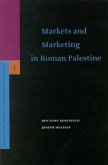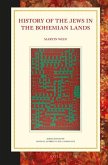Using cutting-edge theory regarding trade networks and diaspora, this study challenges the historiographical argument that the Sephardim, and indeed, a variety of religio-ethnic groups, achieved their commercial success by relying on geographically dispersed family members and fellow ethnics. The book s findings challenge the reigning understanding that commercial success stemmed from endogamous business relationships and socio-cultural insularity. The book demonstrates that the most successful Sephardic merchants of early seventeenth century Amsterdam built their fortunes not thanks to familial or diasporic connections, but through loose ties, economic networks comprised of non-Sephardim. Focusing on three of the most prominent Sephardic merchants in Amsterdam, and a random sampling of other Sephardi merchants, the book reveals a multi-ethnic and multi-religious trade network of non-Jewish merchants.
Hinweis: Dieser Artikel kann nur an eine deutsche Lieferadresse ausgeliefert werden.
Hinweis: Dieser Artikel kann nur an eine deutsche Lieferadresse ausgeliefert werden.








